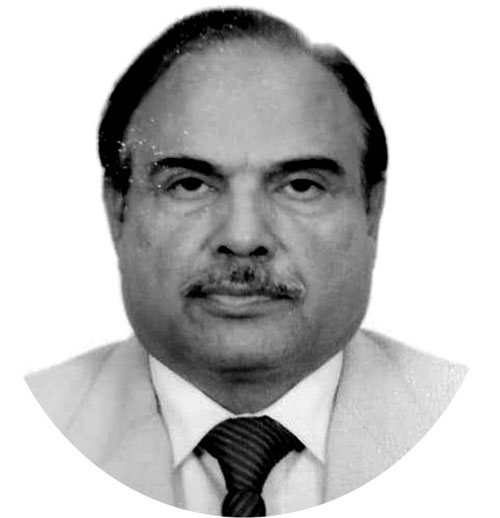Internet voting, opportunities and challenges
INTRODUCTION and background: Under Article 218 of the Constitution of of Pakistan, the Election Commission of Pakistan (ECP) is charged with the duty of organizing and conducting elections and making such arrangements as are necessary to ensure that the elections are conducted honestly, justly and fairly providing equal opportunity and accessibility to all and meeting the aspirations of the nation for a strong democracy in Pakistan.
There are about nine million Overseas Pakistanis of voting age, living worldwide. Out of these about seven million are NICOP holders aged 18 years and above who are eligible voters while the rest are dual nationals who are not eligible to vote as per existing Pakistan electoral legal framework.
The matter of granting right of vote to Overseas Pakistanis has been under consideration among electoral stakeholders like political parties, Parliament, media, electoral analysts, Overseas Pakistanis and particularly the ECP for a long time.
Out-of-country voting, regardless of modality to be followed, is a complex, time-consuming and resource-intensive process.
In depth analysis of the feasible options and adopting the most viable and practical methodology on a priority basis after thorough consultations with all electoral stakeholders, particularly the political parties is the first and utmost important step for making the requisite legislation.
In addition, planning and preparations need to commence on a timely fashion including the crucial outreach to the Diaspora and sensitizing stakeholders, particularly the politicians, to the risks and disadvantages, through a series of mock and live pilot projects before full-scale implementation of the adopted methodology in the general election 2023.
Under the directions from the Supreme Court of Pakistan, ECP, in collaboration with National Database and Registration Authority (NADRA) planned to conduct a live pilot project on 14 October 2018 bye-elections in 36 constituencies of National and Provincial Assemblies of Pakistan.
Before commenting on the operational and technical aspects and outcome of this pilot project, it seems necessary to have a glance over internationally accepted/recognized electoral standards.
Core principles for democratic elections: Article 21 of the Universal Declaration of Human Rights, for which Pakistan is a signatory, establishes a set of core principles for democratic elections within political elections: “Everyone has the right to take part in the government of his country, directly or through freely chosen representatives.
The will of the people shall be the basis of the authority of government; this will (of people) shall be expressed in periodic and genuine elections which shall be by universal and equal suffrage and shall be held by secret vote or by equivalent free voting procedures.”
Five such core principles have been stipulated for the European elections. The elections must be free, fair and transparent. This clause clearly sets out five principles which democratic elections must follow.
• Periodic: Set time periods for elections. Elections must be regular and unable to be easily changed.
• Genuine: Genuine change must be a possibility – the government must be able to change depending on the outcome of the election.
This similarly applies to the competence of the elections organizers – change must be possible through a genuine and well-organized elections.
• Universal and equal suffrage: Each and every citizen should have the ability to vote, regardless of their social status, ethnicity, level of education or any other personal aspect of themselves.
Equally, the ability to register oneself as eligible to vote should not be affected by anything other than age or citizenship.
The principle of equal elections requires that every voter must be given the same number of votes and every vote must carry the same weight.
The election system should only permit every eligible voter to cast one vote and only once – one person, one vote.
• Free suffrage and voting procedures: While this is predominantly a secret ballot other voting options are permitted as long as they are completely free. Free in this context can be understood in two ways.
Firstly, that individuals should not be able to be persecuted for or prevented from their preferred voting preferences.
Secondly, that the elections should be transparent – free in the sense that they are able to be checked for integrity. Voters should be entirely free in their decision and must on no account be interfered with by threats or pressure.
This is guaranteed by provisions to this effect contained in the electoral legal framework.
There is a close connection between the free suffrage and the secret ballot. • Secret vote: The secrecy of the ballot means that no other person or groups of people, private or public including the elections organizers should be able to learn how an individual has cast their ballot.
This clause is included as an ideal voting procedure to ensure that people can vote for who they choose to vote for without fear of repercussions from friends, family, employer or indeed the government.
Options for remote voting by OPs: There are numerous options available for remote voting by Overseas Pakistanis with and without incorporating modern information and communication technologies.
The frequently discussed and debated options for remote voting by Overseas Pakistanis are: 1). Voting by Mail; 2).Establishing Polling Stations in the Embassies/Consulates; 3).Establishing Polling Stations in the Host Countries; and 4). Internet Voting.
Other than remote voting, the most simple and viable option is to have reserved seats for Overseas Pakistanis in the Senate, National and Provincial Assemblies of Pakistan. — To be continued.
—The writer is former Federal Secretary Election Commission of Pakistan and currently Chairman National Democratic Foundation.










